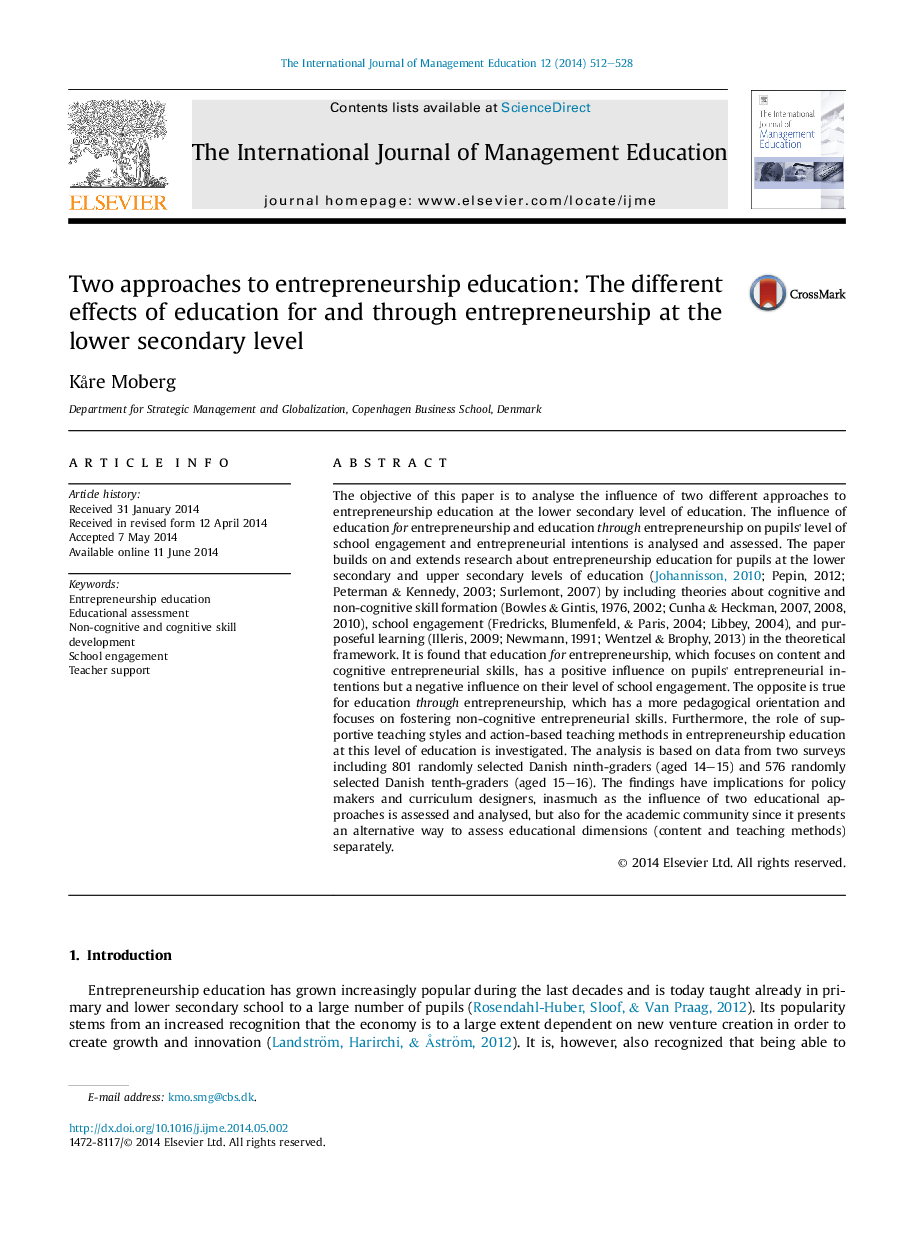| کد مقاله | کد نشریه | سال انتشار | مقاله انگلیسی | نسخه تمام متن |
|---|---|---|---|---|
| 357404 | 1435525 | 2014 | 17 صفحه PDF | دانلود رایگان |
• Education for entrepreneurship increase pupils' entrepreneurial intentions.
• But it has a negative association with pupils' level of school engagement.
• Education through entrepreneurship increase pupils' school engagement.
• But it has a negative association with pupils' level of entrepreneurial intentions.
• Perceived teacher support and action-based pedagogies play an important role.
The objective of this paper is to analyse the influence of two different approaches to entrepreneurship education at the lower secondary level of education. The influence of education for entrepreneurship and education through entrepreneurship on pupils' level of school engagement and entrepreneurial intentions is analysed and assessed. The paper builds on and extends research about entrepreneurship education for pupils at the lower secondary and upper secondary levels of education ( Johannisson, 2010; Pepin, 2012; Peterman & Kennedy, 2003; Surlemont, 2007) by including theories about cognitive and non-cognitive skill formation (Bowles & Gintis, 1976, 2002; Cunha & Heckman, 2007, 2008, 2010), school engagement (Fredricks, Blumenfeld, & Paris, 2004; Libbey, 2004), and purposeful learning (Illeris, 2009; Newmann, 1991; Wentzel & Brophy, 2013) in the theoretical framework. It is found that education for entrepreneurship, which focuses on content and cognitive entrepreneurial skills, has a positive influence on pupils' entrepreneurial intentions but a negative influence on their level of school engagement. The opposite is true for education through entrepreneurship, which has a more pedagogical orientation and focuses on fostering non-cognitive entrepreneurial skills. Furthermore, the role of supportive teaching styles and action-based teaching methods in entrepreneurship education at this level of education is investigated. The analysis is based on data from two surveys including 801 randomly selected Danish ninth-graders (aged 14–15) and 576 randomly selected Danish tenth-graders (aged 15–16). The findings have implications for policy makers and curriculum designers, inasmuch as the influence of two educational approaches is assessed and analysed, but also for the academic community since it presents an alternative way to assess educational dimensions (content and teaching methods) separately.
Journal: The International Journal of Management Education - Volume 12, Issue 3, November 2014, Pages 512–528
